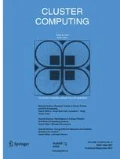Abstract
Information technology is a globally recognized new revolution in science and technology that is happening, which greatly improves the production efficiency. China began to develop information industry in the 1990s. After realizing the catch-up disadvantages of independent research and development, it started to open its market to exchange for technology. After decades of technological catch-up and game, some areas of China’s information industry have been able to compete with the cutting-edge technologies in Europe and America. This paper mainly studies the adaptability of technological catch-up theory to the development of information industry in China; analyzes the tripartite game between catching-up firms, leading firms and government in the process of technological catch-up; and proves the validity of the theory through case studies.


Similar content being viewed by others
References
Teece, D.J.: Technology transfer by multinational firms: the resource cost of transferring technological know-how. Econ. J. 87, 242–261 (1977)
Xiao, L., He, J.: Absorptive capability, institutional quality and technological catching-up effects: an analysis based on the data of large and medium-sized industrial enterprises. China Soft Sci. 7, 137–147 (2015)
Jizhen, L. Chenwei, W. Technological, market and architectural catching-up: the case of chinese digital TV industry. In: PICMET, pp. 1052–1063 (2006)
Wu, X., Huang, J., Zheng, S.: FDI and technological catching-up based on technology gap, absorptive capability. Stud. Sci. Sci. 3, 347–351 (2005)
Kokko, A., Blomstrm, M.: Policiesto encourage inflows of technology through foreign multinationals. World Dev. 23(3), 459–468 (1995)
J, Li, Meng, M.: Technological frontier, technological catching-up and economic surpassing: a discussion from two typical late-development patterns of America and Japan. East China Econ. Manag. 1, 5–12 (2017)
Hong, Y., Su, J. Research on the industrial technological catching-up models in developing countries. Sci. Sci. Manag. S.&.T. 12, 18–23 (2008)
Zhu, F., Jiang, B., Zhang, G.: A research on the technology catching-up of enterprises in developing countries based on product technology chain. J. Manag. Sci. 2, 79–86 (2008)
Tang, C., Tang, Y.: Technological mode and catch-up in China’s industrial technology. China Soft Sci. 4, 59–65 (2006)
Wu, D., Wu, X.: Chinese context of technological catch-up and its significance. Stud. Dialectics Nat. 11, 45–47 (2013)
Wu, X., Su, Z.: Cross-border M & A as a lever of technological catch-up: a dynamic capability perspective. Manag. World 4, 146–164 (2014)
Wang, G., Zhang, B., Li, X.: Empirical analysis on difference in technological catching-up model of China’s auto firms. Technol. Econ. 8, 10–16 (2014)
Chen, J., Qiu, J., Shen, H.: The effect of technological learning on corporate innovative performance. Stud. Sci. Sci. 6, 1223–1232 (2007)
Yang, Q., Han, Y.: Protection of intellectual property rights and foreign direct investment strategies of multinationals. Econ. Res. 4, 28–34 (2006)
Kai-Yuan, L.: China’s Technological Catch-up and Structural Changes of Korean Investment in China. In: Chinese Academy of Science and Technology for Development, pp. 178–182 (2011)
Li, J., Meng, M.: Study on the path of later-developed economic growth from technological catch-up to technological frontier. J. Yunnan Univ. Financ. Econ. 2, 26–34 (2017)
Lin, Y., Zhang, P.: Late-mover advantages, technology import and economic growth of backward countries. China Econ. Q. 4, 53–74 (2005)
Majidpour, M.: Technological catch-up in complex product systems. J. Eng. Technol. Manag. 41, 92–105 (2016)
Figueiredo, P.N.: Beyond technological catch-up: an empirical investigation of further innovative capability accumulation outcomes in developing firms with evidence from Brazil. J. Eng. Technol. Manag. 31, 73–102 (2014)
Ruiz, A.U.: Technological specialization, catching-up and building of technological competences under market integration: Asia and Latin America compared. Economia e Sociedade 22, 641–667 (2013)
Rafik, H., Khan, M., Arunkumar, N., González, G.R.: Hash based encryption for keyframes of diagnostic hysteroscopy. IEEE Access (2017). https://doi.org/10.1109/ACCESS.2017.2762405
Fernandes, S.L., Gurupur, V.P., Sunder, N.R., Arunkumar, N., Kadry, S.: A novel nonintrusive decision support approach for heart rate measurement. Pattern Recognit. Lett. (2017). https://doi.org/10.1016/j.patrec.2017.07.002
Arunkumar, N., Ramkumar, K., Venkatraman, V., Abdulhay, E., Fernandes, S.L., Kadry, S., Segal, S.: Classification of focal and non focal EEG using entropies. Pattern Recognit. Lett. 94, 112–117 (2017)
Arunkumar, N., Kumar, K.R., Venkataraman, V.: Automatic detection of epileptic seizures using new entropy measures. J. Med. Imaging Health Inform. 6(3), 724–730 (2016)
Arunkumar, N., Ram Kumar, K., Venkataraman, V.: Automatic detection of epileptic seizures using permutation entropy, Tsallis entropy and Kolmogorov complexity. J. Med. Imaging Health Inform. 6(2), 526–531 (2016)
Author information
Authors and Affiliations
Corresponding author
Rights and permissions
About this article
Cite this article
Yongming, L., Wang, Y. & Haohao, S. Coordinated development model of E-sports based on three party game. Cluster Comput 22 (Suppl 2), 4805–4812 (2019). https://doi.org/10.1007/s10586-018-2390-x
Received:
Revised:
Accepted:
Published:
Issue Date:
DOI: https://doi.org/10.1007/s10586-018-2390-x




